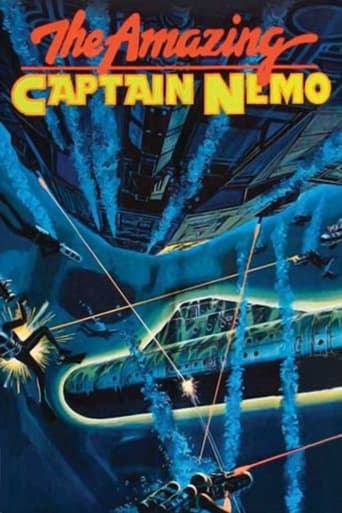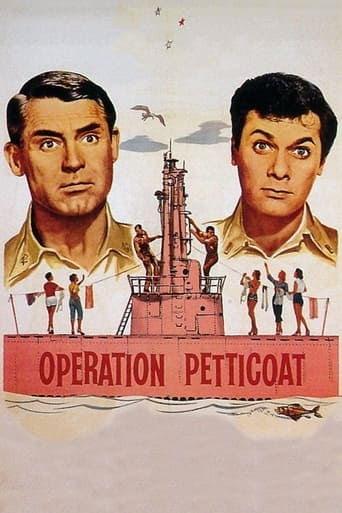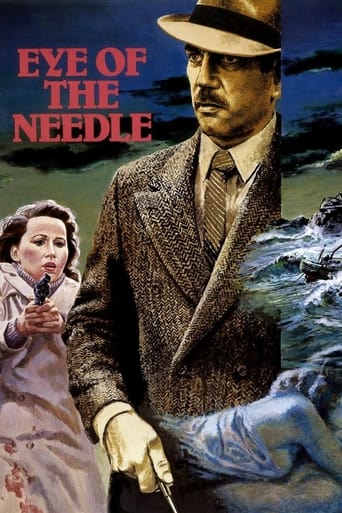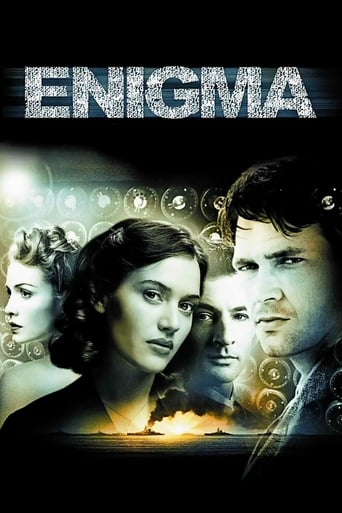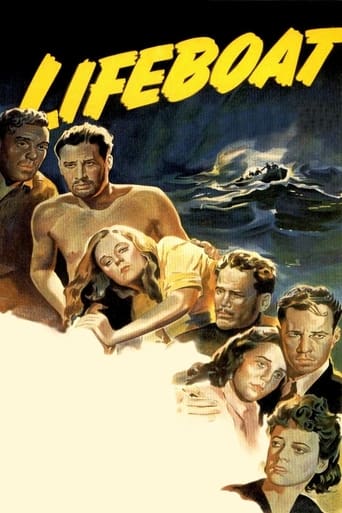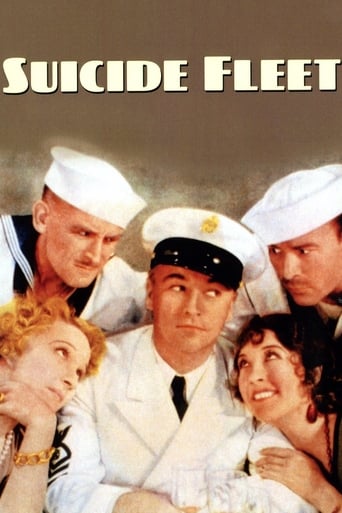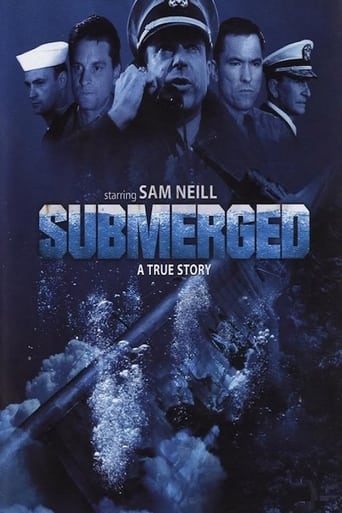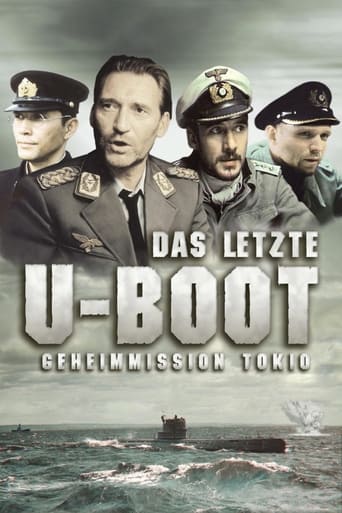

The Last U-Boat (1993)
Near the end of WWII a lone U-Boat is sent from Germany to Japan carrying plutonium needed for a Japanese A-Bomb. During the long journey, news arrives on the radio that Hitler killed himself and Germany has surrendered. This causes a rift in the crew, the Nazi Party members wanting to continue to Japan since they are still at war, while the others just want to surrender or return home.
Watch Trailer
Cast
Similar titles
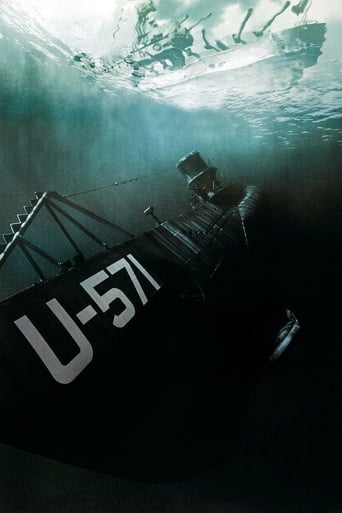
Reviews
Crappy film
It's the kind of movie you'll want to see a second time with someone who hasn't seen it yet, to remember what it was like to watch it for the first time.
It’s fine. It's literally the definition of a fine movie. You’ve seen it before, you know every beat and outcome before the characters even do. Only question is how much escapism you’re looking for.
The film never slows down or bores, plunging from one harrowing sequence to the next.
"The Last U-Boat" is a highly fictionalized tale of the last mission of U-234, a German U-boat, which, in an almost delicious coincidence, was actually carrying U-235 isotopes (and other war matériel) on a secret mission to Japan, as it were, just as the Third Reich was in its death throes. For a war movie buff, the basic premise is interesting and unique enough, with there being Nazis or various sorts, Japanese, British, and Americans all interacting in various potentially sort of plausible ways.Before I go any further, let me also say that this movie has basically nothing to do with the original, classic "Das Boot" in any way other than that they both involve submarines and that it appears that somewhere down the line some opportunistic or cynical marketers got the "das boot 2" tag line somehow associated with this thing. Don't believe it! Unfortunately, the execution is poor, and this film deserves nowhere near it's current 6.5 IMDb rating. Basically, the "high level" plot is interesting, but the overall dialog appears to be somebody's first attempt at a screenplay, which begs the question of how this thing ever got made. This is partially answered by the obvious cost savings of not having much in the way of plausible sets, effects, or actors. The actors manage to take already incredibly poor dialog - you know, the type that just screams "I am reading exposition!" and make it seem even worse. Look - this review is operating that this film was shot as a low budget but ultimately "professional" and/or commercial endeavor - it is clear that few of the actors had ever been before a camera before.Sets and effects: fine, i get it. You can't afford to film some (most) sub scenes inside of an actual sub. But, if you're going to want me to believe, for example, that what is obviously the interior of an old railway sleeping car (Japanese officers' stateroom) is inside of a submarine, would it hurt you to have some engine sounds? As I said - the plot at a high level was decent enough and something could have been made of it. And, I can sort of understand that this low budget movie has low budget "actors" and effects. What I don't understand at all, however, is just how the technical dialog of the movie was so badly massacred. After all, the script seems to have started as the pet project of somebody who, you know, takes an interest in Submarines and WW2. Tell me again how a submerged submarine is using it's "RADAR?" Tell me again how a *SURFACED* submarine manages to possibly sink an *ANTI SUBMARINE DESTROYER*? I'm fortunate enough to speak a little Japanese, so I recognize that some of the Japanese actors were OK, even though they were reading Japanese-language lines clearly not written by a Japanese speaking person (but rather, translated into Japanese). Similarly, the "good" Nazi general had moments of not total acting awfulness, as did the captain. the rest of the movie (including certain scenes by the aforementioned general) features some of the worst acting ever put to film, with special compliments to the "Captain of HMS Liverpool" for being perhaps the worst actor of the 20th century.
This movie is apparently based on the true story of a U-boat mission that set off just prior to the end of WWII in Europe. It's goal being to deliver Uranium Oxide from Norway to Japan for the ultimate aim of constructing a nuclear weapon.The movie is also known in some territories as "Das Boot 2 - La Ultima Misión". But, I should mention that if you've seen "Das Boot", then I would say that "The Last U-boat" isn't really a sequel to that movie.The budget, production values, and acting in "The Last U-boat" can't match that film, which is unsurprising since many would say (myself included) that "Das Boot" is indisputably the greatest U-boat film ever made. However, this does not matter at all, because "The Last U-boat" stands up perfectly well on its own, and has a whole different atmosphere about it.I really like this film, as it succeeds in making you feel for the main characters, in particular, the German commander. There's a real believability in the seemingly nonsensical orders and allegiances the characters are faced with, and the near impossibility of making rational decisions under those circumstances. It seems even the superior officers back on land have lost the ability to make decisions.The whole movie has a sombre, resigned mood flowing throughout, and this gives it a pessimistic realism and inevitability.The film differs from "Das Boot" however because it does not even start out optimistically. The officers on board are even more extremely "war damaged" and weary from the very beginning.I particularly like the feel of the scenes above the surface, filmed on the U-boat and on the destroyer, with a low sun and long shadows.Those scenes really do evoke the feeling of being out at sea on a late afternoon somewhere around the Northern stretches of the British Isles (according to the map in the movie, somewhere off Western Scotland). I think that fits the "end of the war" setting really well.I should also mention that the Japanese characters really lend the film a great dignity.So, I recommend for any fans of the genre to get your hands on this one. If you truly enjoy submarine movies, and don't mind a bit of historical or technical inaccuracies then you won't be disappointed.
The story is obviously based on a historic event: the voyage of the submarine U-234, which was bound for Japan. It had weapons, detail drawings for weapons, and uranium aboard. The uranium was meant to help Japan build an atomic bomb. The sub started in April 1945. When Germany capitulated in May, they had to decide whether they would go on to Japan (who hadn't capitulated yet) or surrender...The movie isn't absolutely accurate historically, but that's not a big problem in my opinion. The makers don't pretend to be accurate; the sub in the movie isn't called U-234. The plot is the big problem. There are a number of small inconsistencies, for example when there's a leak, one of the two Japanese officers aboard seems to know how to repair the (German) sub better than the Germans themselves. I think I could live with these small inconsistencies, but there's also one plot hole that is deeper than the Mariana Trench (I've also sent this as an update to IMDb's 'goofs' section for this title; hope they'll accept it): At the beginning of the movie, one of the German officers explains the abilities of the sub: it can stay submerged for a very long time. As long as it's submerged, detection of the sub is difficult. So why do they stay on the surface almost all the time? This makes the captain seem ridiculously stupid. Why doesn't he take advantage of the best feature of the sub? Of course, they are detected by the radar of a British destroyer (but that is not the end of the movie; I won't give away the ending because I don't want to spoil it.)On the other hand, I liked the part when they have to decide whether they want to go on or surrender. The officers have differing opinions, there are heated discussions, tension builds. And I think the actors did a good job.But, as I've said before, it could have been a lot better in my opinion, so I have given it only six points. There was a documentary about U-234 on German TV. Its title is 'Kurs Fernost', made by Discovery Channel. I don't know the English title or if it has ever been shown outside of Germany. It's very good and interesting in my opinion. If you are interested in the theme and have the chance to see it, I think you should consider watching it. And if you want to see a really good submarine movie I think I can recommend the mini-series version of 'Das Boot' (it's longer than even the director's cut version).
A mission about to begin, a war about to end. The year 1945, few days before the german rendition to the allied forces. A german submarine with some japanese crew is sent to Japan to deliver a plutonium cargo. This radioactive element would help the japs to develop the atomic bomb before the americans. But before the U-boat reach the first half of its itinerary, a transmission announcing Hitler's suicide and the german rendition to the allied forces is received. So the war is over, but only among the allies and Germany, what about Japan? So, the capitain has to choose between complete his mission or surrender to the first american force they find.



